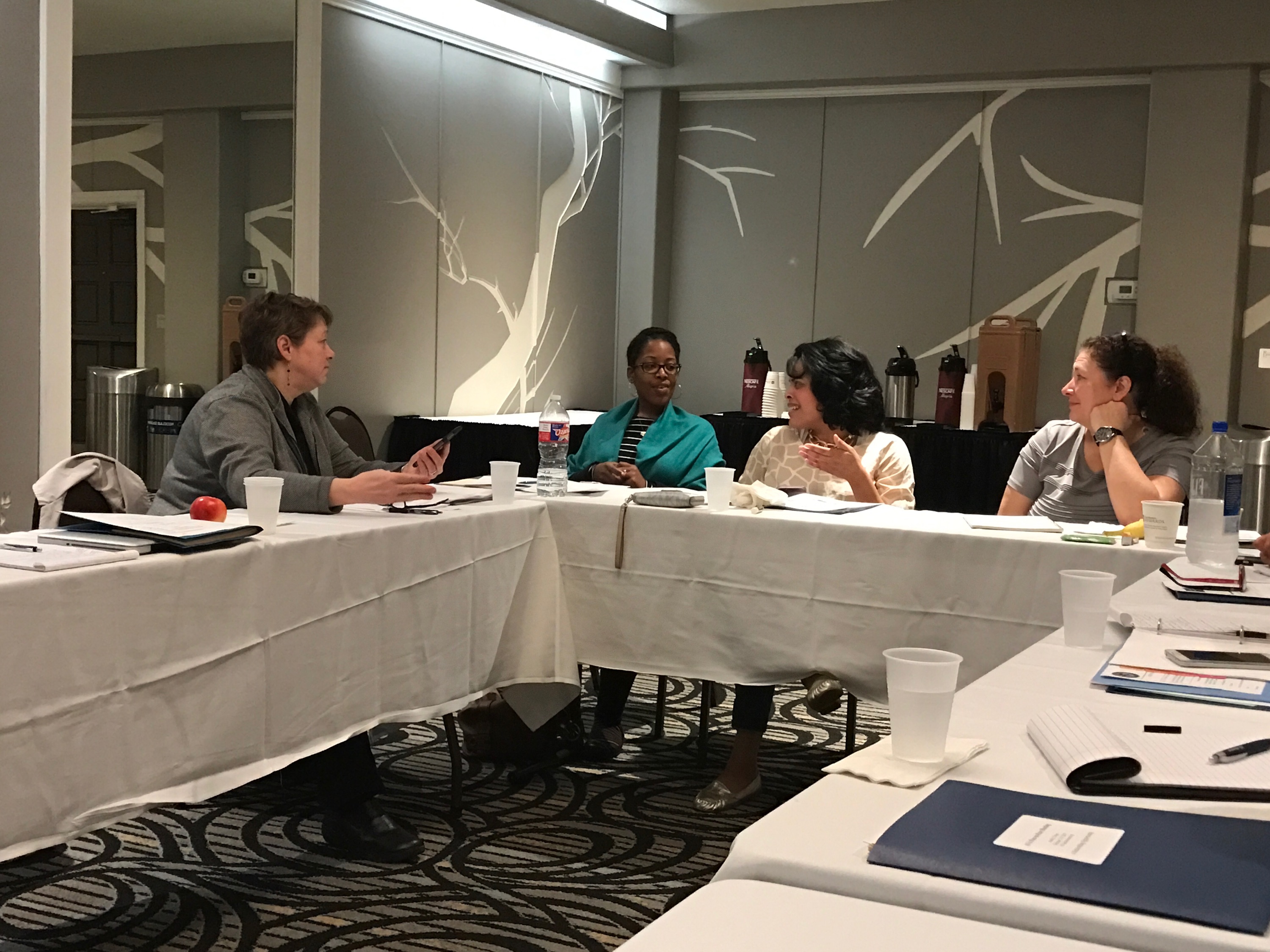Austin Peer to Peer Meeting – Febrary 2017
AVA held a Peer-to-Peer meeting in February in Austin. A lot of information was covered, many great conversations were had, and valuable lessons were learned from one another on how to accomplish the day-to-day work of meeting STOP program mandates. A little time was also taken to discuss how the influx of VOCA funds has impacted STOP programs. This meeting was attended by 12 administrators and staff from 10 states. Portions of the discussions are highlighted below. AVA will follow up with OVW and get back with everyone on those items to which we needed answers.
Interesting facts from various states:
- Montana has a tribal representative within their Attorney General’s Office and they’ve developed a specific RFP with a
 tribal focus.
tribal focus.
- New Mexico has developed a mobile SANE program and their sexual assault coalition determines the fee structure for sexual assault exams statewide.
- Iowa conducted a Salary and Benefits Study. Based on the recommendations within the study, they have mandated salary increases and minimum salary levels for some positions. The goal was to help reduce advocacy turnover rates by providing a living wage. The report is available on the AVA website under member resources.
- Minnesota and Iowa have developed new grantee risk assessment forms.
- Connecticut gives their victim services money to their coalitions – this frees up the STOP administrator to focus on other nuances of their program.
Use of Discretionary monies
- Oklahoma and Montana use discretionary funds for fatality review and PREA efforts.
- Texas uses discretionary funds for lethality review.
- Indiana, Iowa, Delaware and Minnesota use discretionary funding toward the demand for victim services.
- New Mexico focuses on funding nurses to broaden the availability of SANE services as well as PREA efforts.
Use of Court monies
- Indiana funds a protection order E-filing system.
- Minnesota funds a Point of Contact on Sexual and Domestic Violence staff person and funds training of judges.
- New Mexico funds a point of contact attorney and developed a training book for clerks.
- Delaware funds training.
Implementation Planning
- Who within the tribe must we talk to? Is this specified?
- The SW Indian Law Center offers TA to help states in working with tribes. Great opportunity to learn to communicate with tribal leaders.
- The National Indian Nations Conference is a great resource for learning to work with tribes. Those who have attended this conference described it is very beneficial.
Underserved
- It was discussed that this is defined differently depending on the jurisdiction – some states struggle to identify populations within their states.
- Information gathering – thinking outside the box
- Some administrators are attending school groups, sewing groups, talking with migrant workers and the homeless, etc.
Issues to take to OVW:
- Lots of questions around indirect costs, e.g., viability of projects when indirect costs are taken off the top, and whether it is allowable to deny a grant proposal that is deemed no longer viable due to indirect costs rate.
- Close-out reports: how are these used because the information seems duplicative with the Muskie reports?
- Special conditions – some are no longer valid or apply to discretionary programs while others refer you back to the OVW website to figure out what is applicable. It would be great if these could be updated and could include all the applicable conditions without linking to another website.

From left to right: Jennifer Geinosky (IN), Donald Stout (TX), Cecilia Miller (MN), Laura Russell (OK), MaryEllen Garcia (NM), Janelle Melohn (IA), Terica Jones (DE), Kristina Gonzalez (CT), Tina Chamberlain (MT), Ericka Blythe (DE), Lori Miller (IA) and Dorene Whitworth (AVA). Not pictured is Lisa Lineback from (MO).
